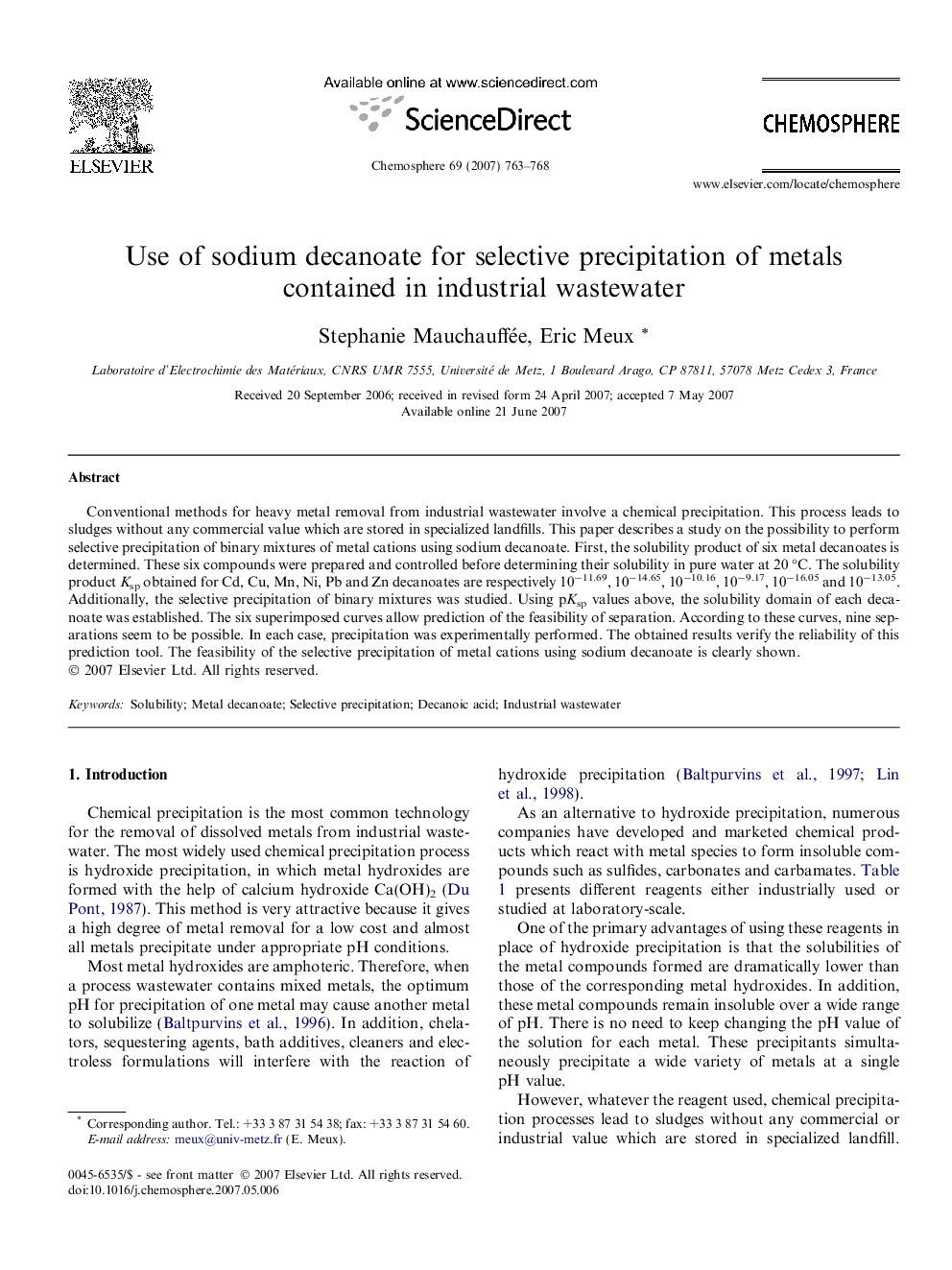| Article ID | Journal | Published Year | Pages | File Type |
|---|---|---|---|---|
| 4414738 | Chemosphere | 2007 | 6 Pages |
Conventional methods for heavy metal removal from industrial wastewater involve a chemical precipitation. This process leads to sludges without any commercial value which are stored in specialized landfills. This paper describes a study on the possibility to perform selective precipitation of binary mixtures of metal cations using sodium decanoate. First, the solubility product of six metal decanoates is determined. These six compounds were prepared and controlled before determining their solubility in pure water at 20 °C. The solubility product Ksp obtained for Cd, Cu, Mn, Ni, Pb and Zn decanoates are respectively 10−11.69, 10−14.65, 10−10.16, 10−9.17, 10−16.05 and 10−13.05. Additionally, the selective precipitation of binary mixtures was studied. Using pKsp values above, the solubility domain of each decanoate was established. The six superimposed curves allow prediction of the feasibility of separation. According to these curves, nine separations seem to be possible. In each case, precipitation was experimentally performed. The obtained results verify the reliability of this prediction tool. The feasibility of the selective precipitation of metal cations using sodium decanoate is clearly shown.
